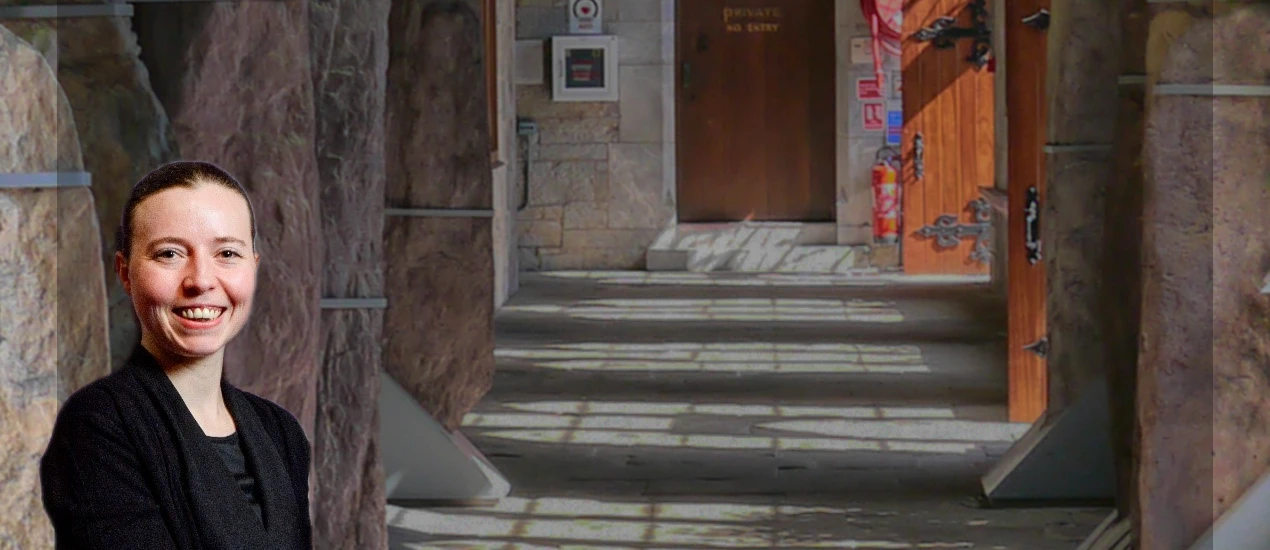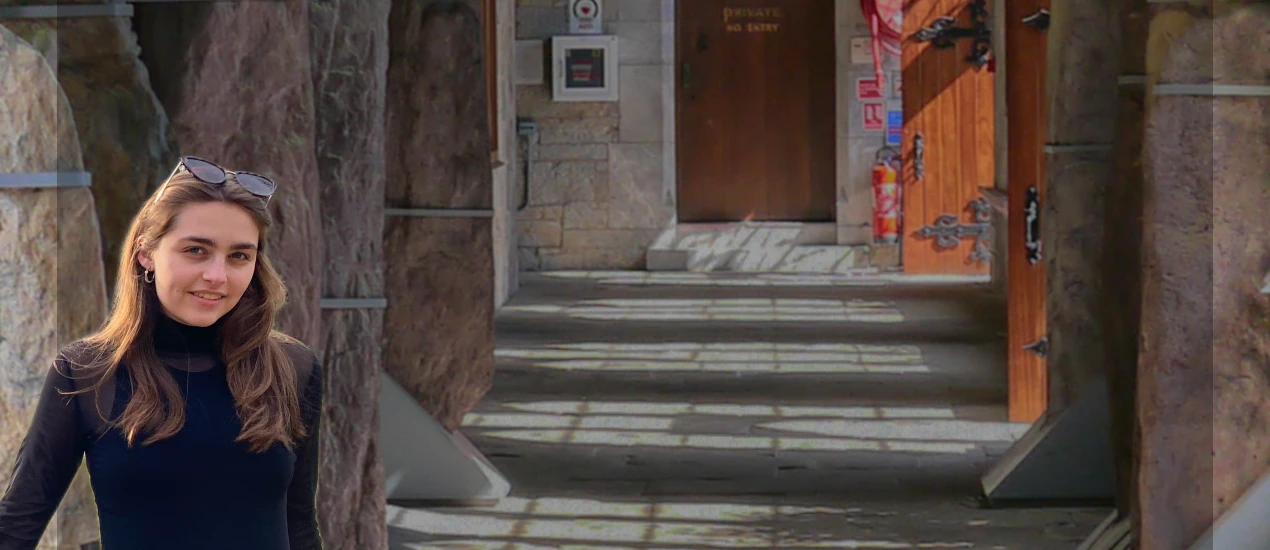| Code | CK123 |
|---|---|
| Duration | 3 or 4 years |
| Teaching Mode | Full-time |
| Qualifications | BA (Hons) |
| NFQ Level | Level 8 |
| CAO Points | 2025: 301 |
| CAO Points Range | 2025: 301-565 |
Course Outline
Anthropology is the study of humankind, across time and space. It grapples with the question of what it means to be human and offers a powerful lens through which we can better understand the human experience, providing insights that are particularly valuable in today’s interconnected world. Anthropology therefore has an important role in promoting understanding and respect across real or imagined cultural differences.
At UCC, our BA Anthropology program immerses students in the four core subfields of anthropology: archaeology, biological anthropology, linguistic anthropology, and sociocultural anthropology. Unique within a European setting, our curriculum draws on faculty expertise and research both in Ireland and abroad, and together we will explore human evolution and adaptation, heritage and colonial histories, human-environment interactions, semiotics and religion, ethics and global economies, and more.
Programme
Anthropology at UCC is the only BA degree in Ireland inspired by the North American four-field approach - with a focus on Sociocultural Anthropology, Biological Anthropology, Archaeology and Linguistics - at its core. Our BA (Hons) Anthropology programme is a full-time honours degree taken over three years. If you wish to spend a year abroad at one of our partner institutions in Europe and beyond, you can take the International Pathway option and spend Year 3 abroad before returning to UCC to complete your degree in Year 4.
Year 1 modules
Students take 60 credits as follows – all listed core modules (45 credits) and 15 credits of elective modules:
Core Modules
AR1001 The Archaeology of Ireland in Context (15 credits)
AY1001 Introduction to Anthropology (5 credits)
HI1002 Modern Ireland: Culture, Politics, and Society (5 credits)
HI1012 Women in Europe since 1800 (5 credits)
SC1005 Introduction to Sociology (5 credits)
SC1006 Key Issues in Sociology (10 credits)
Elective Modules
FL1004 Introduction to Irish Folklore & Ethnology (15 credits) or
RG1001 Religions in the Contemporary World: An Introduction to the Study of Religions (15 credits)
Academic Programme Catalogue
See the Academic Programme Catalogue for the complete and up-to-date content for this course. Note that the modules for all courses are subject to change from year-to-year. For complete descriptions of individual modules, see the Book of Modules.
Course Practicalities
Expected lecture hours: Lectures are scheduled Monday to Friday, 9am to 5pm. Each student’s timetable will differ depending on the subjects selected. Class contact time will vary depending on which module options you choose. Each 5-credit module has approximately 24 x one-hour lectures.
Field trips: Students may be required to attend field trips in some modules, generally involving one or two weekend days each year. There is also a required Anthropology field school in the second year, where a residential course is held over four days during the Easter period.
Why Choose This Course
- The UCC BA Anthropology programme is unique in Ireland.
- The interdisciplinary nature of this degree, modelled on the North American approach, is also unique in a European context.
- The programme provides strong academic learning and applied skills in Anthropology and in the major sub-fields of Archaeology and Sociology.
- The BA programme provides a solid foundation for graduate training that will lead to direct and indirect employment in professional areas of social science and archaeology, with work opportunities in a variety of government and non-government agencies, community groups, and in areas of industry such as market research, human resources, and public services.
- Students will acquire a range of transferable skills important for employers in other areas, such as an ability to solve problems and think in a critical manner, and well as good communication skills, literacy and digital competence.
Connected Curriculum
We encourage innovative teaching and learning practices at UCC. This learning approach reflects our commitment to the Connected Curriculum where we emphasise the connection between students, learning, research and leadership through our vision for a Connected University. Our staff are at the forefront of this integrative approach to learning and will support you in making meaningful connections within and between disciplines such as Anthropology, Archaeology, Sociology and across the breadth of the Arts programme.
Placement or Study Abroad Information
Study abroad: If you select the International Pathway in this degree, you will have the opportunity to spend Year 3 studying Anthropology at one of our numerous partner universities in Europe, North America, or Asia, before returning to UCC for Year 4 to complete your degree. See our Go Abroad with UCC page.
Work experience: There are a number of options for work experience both in the summer prior to and during your final year. There are also supported options through the CACSSS Professional Work Experience module (PX3001). This module offers preparatory training, a work placement organised by the UCC Careers Office, and post-placement follow-up.
You are also encouraged to seek summer employment in areas relevant to your studies, such as archaeological excavation, tourism and heritage, market research, and with State agencies working in public services and social policy, among others.
Skills and Careers Information
This BA degree will provide you with the intellectual and practical means to understand cultural diversity around the world, and an ability to view our own culture in a critical manner. These skills are highly prized by employers. Career options include working as an archaeologist and forensic anthropologist, in arts administration and creative industries, community work, museums and heritage centres, journalism, librarianship, market research, the media, and in State bodies and NGOs dealing with social policy.
Direct entry into some of these careers is possible, while others require training at the postgraduate level to build on the academic foundation of a primary degree that has international recognition. Students with an Anthropology degree have a range of graduate career training options at masters and higher level, offered within UCC and in other Irish and overseas universities.
Postgraduate Options
Options for postgraduate study at UCC include:
- MA Anthropology
- MA Global Cultures & Languages
- MA Human Osteoarchaeology
- MA Museum Studies
- MA Sociology
- MA Sociology of Sustainability & Global Challenges
Please see the CACSSS postgraduate study page for more information including PhD in Anthropology and other PhD options for CACSSS graduates.
Requirements
Leaving Certificate Entry Requirements
At least six subjects must be presented. Minimum grade H5 in two subjects and minimum grade O6/H7 in four other subjects. English and Irish are requirements for all programmes unless the applicant is exempt from Irish.
Applicants will need to meet the following minimum entry requirements:
| English | Irish | Other Language |
|---|---|---|
| O6/H7 | O6/H7 | O6/H7 |
EU/EFTA/UK Qualifications
EU/EFTA/UK applicants presenting an equivalent school-leaving qualification should review the EU/EFTA/UK Applicants page for information on equivalent grades and how to prove their level of English.
Mature Students
To compete through the mature entry route, applicants must be 23 years of age on or before 1 January of the application year and apply online via the CAO by 1 February. The application should include a statement of interest.
Further information on applying as a mature student is available on the Mature Applicants and Mature Student Entry support pages.
QQI FET Entry
Applicants who meet the required level of distinctions in required subjects can apply for entry to this course using specific QQI FET qualifications. Please review the Programme Requirements on our Information for QQI FET Applicants page for information on related QQI courses, and visit Access UCC’s QQI/FET Entry section for further support.
Non-EU Applicants
Non-EU applicants are expected to have educational qualifications of a standard equivalent to the Irish Leaving Certificate. In addition, where such applicants are non-native speakers of the English language they must satisfy the university of their competency in the English language.
To verify if you meet the minimum academic and language requirements visit our qualification comparison page and refer to our International Office page for more information.
Fees and Costs
- Whether you are an EU or Non-EU student will affect the course fees applicable to you. See more information on EU Fees, Non-EU Fees, or Free Fees Status.
- The State will pay the tuition fees for EU students who are eligible under the Free Fees Scheme. The annual student contribution and capitation fees are payable by the student.
- See the Fee Schedule to find out the course fee.
- Check out scholarships that may be available to you.
- Explore our Nurturing Bright Futures free online course (Module 5) to learn about managing your money as a student and budgeting for university life.
How To Apply
Irish and European (EU/EFTA/UK) Applicants
Apply via the CAO. See the CAO Handbook for useful information on applying through the CAO.
Mature Applicants
Apply via the CAO by 1 February. To apply for a place as a mature student, you must be 23 years of age on or before 1 January of the year of entry.
QQI/FET Applicants
Apply via the CAO. See our QQI/FET Applicants page for information on the Quality and Qualifications Ireland (QQI) Further Education and Training (FET) application process and whether there are routes available to this course.
Non-EU Applicants
If you are from outside the EU/EFTA/UK, apply online via the UCC Apply portal. See our International Office page for more information.


